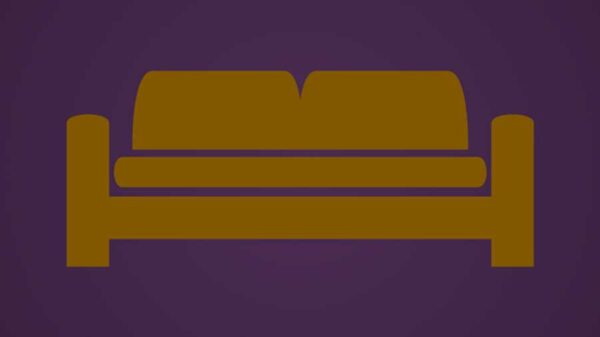
How to Find the Best Psychologist in NYC for Your Mental Health Needs
Dr. Gregory Kushnick, Licensed NYC Psychologist
Tel. 917-566-7312
138 West 25th St., Suite 802-B4, New York, NY 10001
Finding the best NYC psychologist for your needs can feel like an impossible task. I’ve put together a list of some great strategies for finding a therapist. So many current and prospective patients have shared with me how daunting it feels to find a psychotherapist in New York area. I hope this guide will make your search easier.
Tips for Your NYC Clinical Psychologist Search
1. Cross reference your findings from therapist listings with Google searches.
Don’t stop at the information offered on New York therapist listing sites such a Psychology Today. Find a therapist by going a step further to learn what potential mental health clinicians are really about. Has the psychologist written anything of interest or reported on the latest research? Do they seem modern, worldly and knowledgeable based on their online presence? Do they have impressive reviews on Google? What about their website? Do they talk in a relatable way or do they sound cliche?
2. Pay attention to your first reaction to the picture of the therapist’s face.
There’s so much valuable information in your gut reaction to how he or she looks. Does his or her face make you feel at ease or stressed out. Is it a face you can trust?
3. Ask your friends if they had a psychologist they enjoyed working with.
A referral from a trusted friend is gold. Don’t be afraid to share your need for mental health therapy. Getting the help you need is a sign of strength. Friends who will judge you for needing therapy may not have your best interests at heart and are probably not very evolved.
4. Interview 2–3 prospective clinical psychologists unless you’ve found your match with the first one.
Don’t hesitate to ask questions about what matters to you. Call or email the therapist and ask away. If they don’t make time to answer your questions, then stay away.
5. Seek to understand the psychotherapist’s theoretical orientation/ their approach to therapy to see if it matches the style of therapy you’re looking for.
This one also requires a call or email. Ask them to explain how they conduct therapy and what guides their approach. If they can’t answer clearly, don’t choose them. Do you want a more collaborative CBT experience? Structured? Traditional/psychoanalytic? Existential? Don’t be afraid to ask.
6. Speaking of the phone call, see how you reach to the therapist’s voice.
Does his or her voice soothe you? Is it harsh? That voice has to calm you, but also potentially motivate you.
7. Do some research on the different types of mental health clinicians in New York City.
Are you looking for a psychologist (who is likely to have more formal schooling/training on diagnosis and treatment), a clinical social worker (who could potentially have even more extended training than a psycologist, but you have to ask or google), a marriage and family therapist (who specializes in couples therapy but can still be an amazing individual therapist), a mental health counselor, etc?
8. Many New York City psychotherapists specialize in something or have developed a special skill based on the types of clients they attract.
Most NYC therapists list anxiety, depression and relationships as their specialty. That doesn’t tell you much. Ask your prospective New York psychologist with whom do they work best work? Patients with anxiety? Addiction? For example, I don’t have a specialty per se, but my practice has attracted clients grappling with certain problems, such as panic attacks, social anxiety and work stress, which has prompted me to develop my skills further to give them a great healing experience.
Feel free to contact me if you have any questions about this article or if something is unclear. I love what I do and I want you to find the help you need.
I have created other articles on the topic of finding a NYC psychologist if you want to read more. Please take a look at some of my other psychology articles on HuffPost to learn more about my philosophy.
Learn More
11 Things You Need to Know About Starting Therapy in NYC
The decision to start therapy in New York City can be scary as hell.
After all, it’s hard to know what to expect before you actually begin your sessions.
I’m going to take some of the confusion out of the decision-making process. I’m also going to give you an idea about what to expect in the first session, even though the way the start of therapy is structured varies from therapist to therapist.
The insights shared below are based on my experiences as a Manhattan psychologist who has worked with thousands of New Yorkers.
My ultimate goal is to make you feel less anxiety about the decision to begin therapy and more primed for success with the process.
A quick note…If you’re reading this as you prepare to start therapy under my care, please feel free to ask me any questions about what I’ve written below. I want you to get the most out of the first session and beyond.
Preparing for the First Therapy Session
So here it goes, 11 thoughts about starting therapy in NYC that you need to know.
1. Once you sit down on the couch and start talking, it will be the greatest relief you’ve felt in a long time, nothing like the anxiety you experienced around the decision to enter therapy.
Most people feel immense relief after the first session at least partially because they experience a release of a buildup of emotion they’ve been holding on to for days, weeks or months. This benefit is wonderful, but the most impressive emotional gains are made once you roll your sleeves up and get deeper into the intervention.
2. It can be helpful to write down what you’ve been struggling with before you begin the first session.
Taking a few notes ahead of the initial appointment is by no means necessary, but very often people have a hard time articulating what they want to work on. Writing is a great way to organize your thoughts heading into therapy.
3. Most, but not all, therapists will ask you in the first session what you hope to accomplish in therapy.
4. The blistering pace of modern life makes therapy a necessity.
If you’re living in a bustling city, therapy is the ultimate place to combat the stress and pressure you feel on a daily basis as a result of the lifestyle you’ve signed up for. We are evolving as a culture to fill up every potential moment for self-reflection with our screens. Therapy offers an opportunity to check in with yourself and a good look at what needs to be worked on.
5. Insight alone rarely produces significant improvement.
Your willingness to test reality and make cognitive and behavioral changes is the real spark. Amazing insights gained through therapy can be mind openers, but not game changers. Therapy that relies on insight as the dominant force of transformation takes much longer to produce substantial changes. In my experience, therapy designed to create new insights, which is fortified by active interventions, such as disputing irrational beliefs, is much, much more effective. This is why I’m big on CBT therapy. As a cognitive behavioral therapist in New York City, I strive to offer tools for clients, in addition to insight. Tools + insight = better outcomes.
6. Some people are raised to view therapy as unnecessary or hocus pocus. Your therapist will probably prove them wrong.
From the outside looking in, it’s hard to see the potential benefits of therapy. The nature of emotional suffering is such that it can be hard to imagine feeling substantially better just by talking to a therapist. Most therapists do more than just talk to you. They are trained in applying specific interventions to alleviate suffering and they know how to build a strong therapeutic relationship that will predict a positive outcome for you.
7. If you’re therapist considers himself or herself a psychoanalyst, expect to do most of the talking. If the therapist identifies with CBT as the primary mode of therapy, expect him or her to be more active in the process.
The truth is that most therapists do not take a single approach to conducting therapy. Feel free to ask your therapist-to-be how active he or she is in the sessions so there are no surprises. With that said, like most therapists in New York City, I tend to do much less talking in the first session because I’m asking questions and planning my intervention. Therefore, it’s hard to use the therapist’s engagement level in the first session to determine how collaborative the therapy will be.
8. Don’t expect your therapist to force things out of you.
Therapy tends to go at a pace set by the patient. Your therapist is likely to be sensitive to your signals that certain topics are off limits until you’re ready to go there. Just know that a seasoned therapist will pick up on what is omitted from your story. You don’t have to do anything about that.
9. The trend among newer generations of therapists is to act more “real” with patients.
Unless you’re in the market for 3-times-a-week, lying-on-the-couch psychoanalysis, you can safely assume that your psychologist won’t present as a tabula rasa, the latin phrase for “blank slate.” In other words, he won’t strive to remain 100% nonreactive, cold and neutral. In my experience, most patients appreciate realness from a therapist, which doesn’t mean that he will be constantly sharing about his own personal experiences. Rather, it means that his reactions will seem genuine and empathic. Another wonderful consequence of your therapist being real with you is that it can feel like you have a coach in your corner, which most patients enjoy.
10. Therapy is not as helpful if you don’t a bit of take time between sessions to reflect on what was discussed in session.
If you want to get the most out of your sessions, consider actively applying what you’ve learned in sessions to your life. Feel free to challenge your therapist to help you plan for testing in real life any lessons learned during sessions.
11. Therapy will be helpful to the extent that you’re open to change and willing to look at your contributions to your own suffering.
This is a tough one to really, truly understand for most people. Success in therapy involves a willingness to examine some of your most uncomfortable thoughts, feelings and experiences. If someone is pushing you into therapy kicking and screaming, then chances are it’s not going to be very effective. You need to want to make changes irrespective of what someone who cares about says you should do. If you tend to blame other people for your problems, you’ll be limited in how much you’ll get out of your sessions. That doesn’t mean that a little parent blaming here and there doesn’t feel super relieving. It just means that entering therapy with a sense of personal responsibility will predict success with the process.
Good luck with your therapy.
